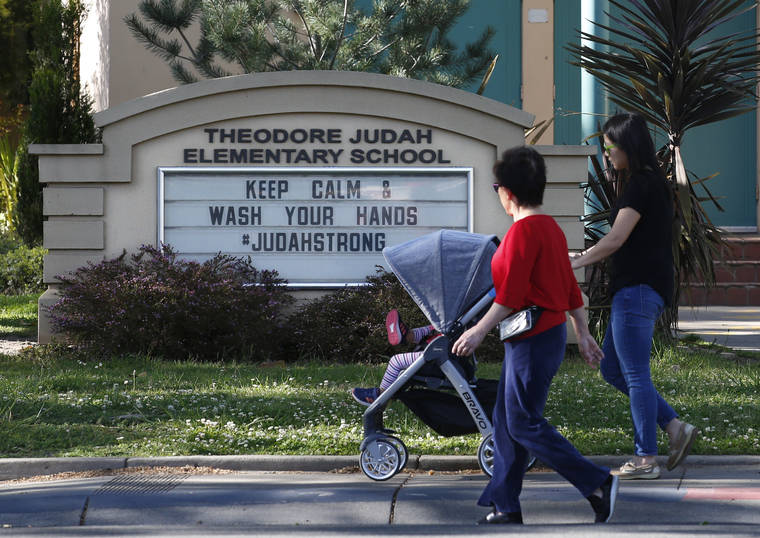SACRAMENTO, Calif. — California will allow schools, day camps, bars, gyms, campgrounds and professional sports to begin reopening with modifications starting next Friday.
The state will release guidance later Friday for counties to follow to reopen a broad range of businesses that have been closed since mid-March because of concerns about spreading the coronavirus, said Mark Ghaly, secretary of the California Health and Human Services agency.
The rules on schools and day camps will apply statewide. But only counties that have met certain thresholds on the number of cases, testing and preparedness will be allowed to start reopening the other sectors. Almost all of the state’s 58 counties have met those metrics. The state’s guidance will also include rules on hotels, casinos, museums, zoos and aquariums and the resumption of music, film and television production.
Democratic Gov. Gavin Newsom has been moving the state through a methodical four-step process for reopening. Most of the new businesses are part of “Phase 3.” Nail salons will not be included in the list, Ghaly said.
When students return to classrooms, things could look vastly different. In addition to requirements for physical distancing, the state plans to supply every school and childcare center with no-touch thermometers, hand sanitizer, face shields for every teacher, cloth face coverings for staff and students and tight-fitting N-95 masks for health care professionals in schools.
California has already allowed most counties to reopen restaurants, hair salons, churches, and retail stores with modifications.
Guidelines on how to reopen schools have been highly anticipated. The state cannot order schools to close, but it can offer guidelines for districts to follow around reopening. They have been closed since mid-March, when Newsom issued a statewide stay-at-home order, and developed distance-learning plans on the fly.
The idea of classes resuming in the fall is a relief for both teachers and parents, and raises new concerns about safety. Districts are also facing the prospects of billions of dollars in state budget cuts as the state scrambles to plug a deficit brought on by the virus.
State Superintendent of Public Instruction Tony Thurmond said last week that he expects a “hybrid model” of instruction at schools, balancing traditional classes and distance learning to accommodate the need for physical distancing.
Leaders in the entertainment industry, meanwhile, have been brainstorming safe ways to get back to work since film, television and commercial production in Los Angeles shut down completely on March 20.
The Directors Guild enlisted “Contagion” director Steven Soderbergh to head a committee to determine when and how productions can resume in collaboration with epidemiologists and “sister guilds,” unions and employers.
Film, television and commercial production make up a significant amount of the Los Angeles economy. According to not-for-profit film office FilmLA, nearly 17% of the local workforce is tied to the industry, which has been out of commission for over two months now.
California’s coronavirus cases and hospitalizations remain stable as the state moves toward a broader reopening. But the state is monitoring and preparing for a potential increase in cases due to broader reopening and mass protests across the state against racial injustice.
California has reported more than 122,000 coronavirus cases and more than 4,400 deaths.
For most people, the coronavirus causes mild or moderate symptoms such as fever and cough that clear up in two to three weeks. For some, especially older adults and people with existing health problems, it can cause pneumonia and death.
——
Taxin reported from Santa Ana, Calif. Associated Press writers Jocelyn Gecker and Lindsey Bahr also contributed to this story.


